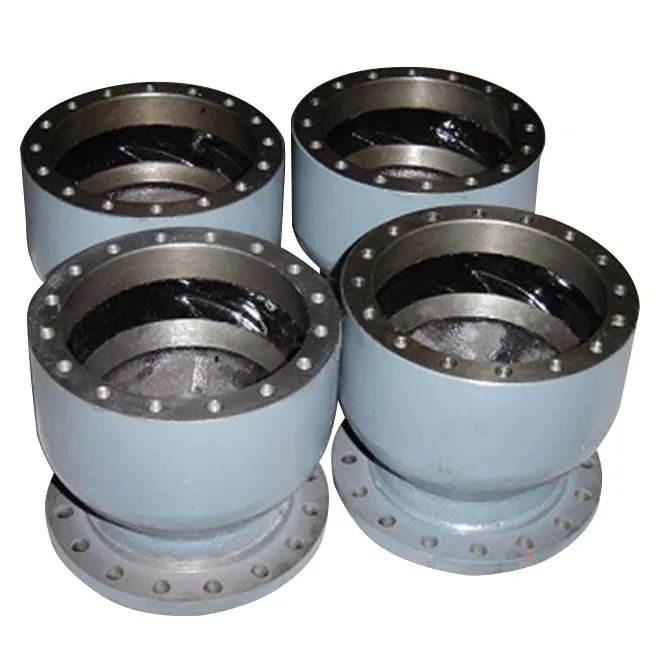Mobile:+86-311-808-126-83
Email:info@ydcastings.com
Advantages and Applications of Aluminum Alloy Die Casting in Modern Manufacturing
Understanding Aluminum Alloy Die Casting A Comprehensive Overview
Aluminum alloy die casting is a manufacturing process known for its effectiveness in producing complex and highly accurate shapes and geometries. This technique is widely utilized across various industries due to its outstanding material properties and the efficiency it offers in production. This article delves into the fundamentals of aluminum alloy die casting, its advantages, applications, and the critical factors influencing its effectiveness.
The Die Casting Process
Die casting is a metal casting process that involves forcing molten metal under high pressure into a mold cavity. The molds used are typically made from hardened steel or other durable materials, allowing them to withstand the high pressure and temperature of the molten aluminum. The process is generally automated, lending itself to high production rates and consistency.
The die casting begins with preparing the aluminum alloy, which may consist of various alloying elements such as silicon, magnesium, and copper. These elements enhance the mechanical properties of aluminum, making it even more suitable for die casting applications. Once the alloy is melted, it is injected into the mold at high pressures, where it cools and solidifies to form the final product.
Advantages of Aluminum Alloy Die Casting
1. Precision and Complexity One of the most significant benefits of aluminum alloy die casting is its ability to produce parts with intricate designs and tight tolerances. This precision reduces or even eliminates the need for extensive machining after the casting process, leading to cost savings.
2. Strength-to-Weight Ratio Aluminum is known for its exceptional strength-to-weight ratio. The alloys used in die casting can further enhance these properties, making them ideal for applications where weight reduction is crucial, such as in automotive and aerospace industries.
3. Corrosion Resistance Aluminum naturally forms a protective oxide layer when exposed to air, which gives it superior resistance to corrosion. This characteristic is advantageous for products used in harsh environments.
4. Cost-Effectiveness Although the initial setup costs for die casting molds can be high, the long-term savings through reduced labor, minimal material waste, and high production rates contribute to overall cost-effectiveness, especially for large production runs.
5. Recyclability Aluminum is one of the most recyclable materials available. Parts produced through aluminum alloy die casting can be easily recycled, making it an environmentally friendly manufacturing option.
aluminum alloy die casting

Applications of Aluminum Alloy Die Casting
Aluminum alloy die casting is extensively used across various industries due to its versatility. Key applications include
- Automotive Industry The lightweight nature of aluminum makes it an ideal choice for automotive parts such as engine blocks, transmission cases, and chassis components. This contributes to improved fuel efficiency and performance.
- Aerospace In aerospace, the durability and lightweight characteristics of aluminum alloys help in the design of aircraft components, improving performance while maintaining safety standards.
- Consumer Electronics Many electronic devices benefit from aluminum alloy die casting, providing lightweight, durable casings that aid in heat dissipation and enhance aesthetics.
- Industrial Equipment Various industrial machines and equipment use aluminum die-cast components to improve performance and efficiency, showcasing the material’s versatility in different environments.
Key Considerations in Aluminum Die Casting
Despite its many advantages, aluminum alloy die casting does come with challenges. Choosing the right alloy is crucial, as specific properties can vary significantly between different alloys. Additionally, the design of the mold must consider factors such as draft angles, wall thickness, and cooling channels to ensure efficient production and quality output.
Furthermore, understanding the thermal properties of aluminum is vital to manage the cooling cycles effectively. Properly managed cooling can prevent defects such as shrinkage or warping, which could compromise the integrity of the final product.
Conclusion
Aluminum alloy die casting plays a crucial role in modern manufacturing, offering precision, strength, and cost-effectiveness for producing complex components. As industries continue to seek ways to optimize performance and reduce weight, the relevance of aluminum die casting is reinforcing its position as a cornerstone technique in material processing. With ongoing advancements in technology and manufacturing processes, the future of aluminum alloy die casting looks promising, set to drive innovation across various sectors.
-
Why Should You Invest in Superior Pump Castings for Your Equipment?NewsJun.09,2025
-
Unlock Performance Potential with Stainless Impellers and Aluminum End CapsNewsJun.09,2025
-
Revolutionize Your Machinery with Superior Cast Iron and Aluminum ComponentsNewsJun.09,2025
-
Revolutionize Fluid Dynamics with Premium Pump ComponentsNewsJun.09,2025
-
Optimizing Industrial Systems with Essential Valve ComponentsNewsJun.09,2025
-
Elevate Grid Efficiency with High-Precision Power CastingsNewsJun.09,2025











